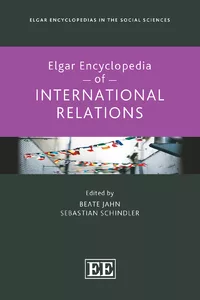Technocracy
Abstract:
Technocracy is a form of government in which technical experts, scientists or administrators make important decisions. The term has been in use since the 1920s and initially had positive connotations. It promised a rationalization of government through expertise, impartiality and commitment to the public interest. In the realm of International Relations, the secretariats of international organizations and the European Union are often described as technocratic institutions. Functionalist approaches to international organization have affinities with technocracy as they suggest expert institutions with narrow, technical mandates to manage transnational problems. In current debates, ‘technocracy’ is normally used with negative, even dystopian connotations, evoking dangers to individual freedom and democracy. It is clearly a normatively loaded concept. However, technocracy may also have some empirical-analytical purchase when conceived as ideology of international organization that can be explored through expert interviews, participant observation or discourse analysis.


